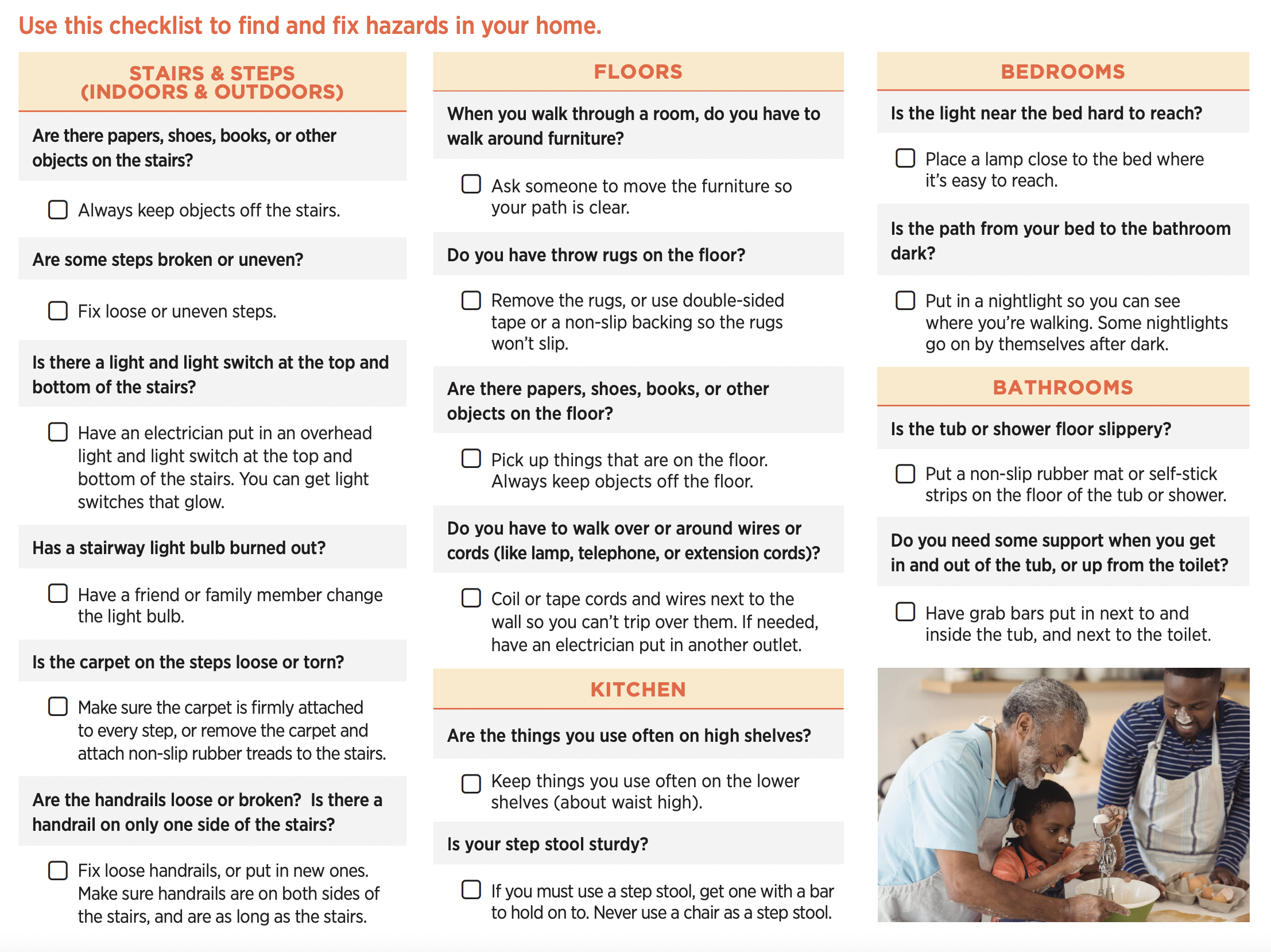The 15-Second Trick For Dementia Fall Risk
The 15-Second Trick For Dementia Fall Risk
Blog Article
The Facts About Dementia Fall Risk Revealed
Table of ContentsHow Dementia Fall Risk can Save You Time, Stress, and Money.The Facts About Dementia Fall Risk UncoveredDementia Fall Risk for DummiesGetting The Dementia Fall Risk To WorkDementia Fall Risk Can Be Fun For Anyone
Analyzing autumn threat aids the whole health care group establish a more secure setting for each patient. Make certain that there is a designated location in your clinical charting system where personnel can document/reference scores and record appropriate notes associated with fall prevention. The Johns Hopkins Loss Risk Assessment Tool is among many tools your staff can utilize to assist protect against damaging medical events.Person drops in health centers are usual and incapacitating unfavorable events that continue despite years of effort to reduce them. Improving interaction throughout the examining nurse, treatment group, individual, and patient's most involved loved ones might reinforce autumn prevention initiatives. A team at Brigham and Female's Health center in Boston, Massachusetts, looked for to develop a standardized fall avoidance program that centered around boosted interaction and client and family members involvement.

The advancement group stressed that successful execution depends upon individual and personnel buy-in, combination of the program right into existing workflows, and fidelity to program procedures. The group kept in mind that they are facing how to ensure connection in program execution during periods of crisis. Throughout the COVID-19 pandemic, for instance, a boost in inpatient drops was linked with limitations in client engagement in addition to restrictions on visitation.
Fascination About Dementia Fall Risk
These occurrences are typically taken into consideration avoidable. To apply the treatment, organizations need the following: Accessibility to Autumn TIPS sources Fall ideas training and retraining for nursing and non-nursing staff, including brand-new nurses Nursing operations that enable person and household interaction to conduct the drops assessment, make sure use the avoidance strategy, and conduct patient-level audits.
The outcomes can be extremely destructive, commonly accelerating client decrease and causing longer healthcare facility stays. One research estimated remains enhanced an extra 12 in-patient days after a patient autumn. The Autumn TIPS Program is based upon engaging people and their family/loved ones across three primary procedures: evaluation, customized preventative treatments, and auditing to guarantee that patients are participated in the three-step loss avoidance process.
The client evaluation is based upon the Morse Loss Scale, which is a confirmed fall risk evaluation device for in-patient health center settings. The range consists of the six most typical reasons individuals in medical facilities drop: the individual loss history, risky problems (consisting of polypharmacy), use of IVs and other external devices, mental condition, stride, and flexibility.
Each danger element links with one or more workable evidence-based interventions. The nurse produces a plan that integrates the treatments and is noticeable to the treatment group, patient, and family on a laminated poster or printed aesthetic help. Registered nurses create the strategy while meeting the patient and the individual's household.
The Of Dementia Fall Risk
The poster serves as an interaction tool with various other members of the patient's care group. Dementia Fall Risk. The audit element of the program includes analyzing the individual's understanding of their threat aspects and prevention strategy at the unit and healthcare facility degrees. Nurse champions carry out at least five Learn More specific interviews a month with people and their households to examine for understanding of the autumn prevention strategy

An approximated 30% of these drops lead to injuries, which can vary in intensity. Unlike other unfavorable occasions that call for a standard scientific reaction, fall avoidance depends very on the demands of the individual. Including the input of individuals that know the person ideal enables greater personalization. This technique has shown to be extra efficient than fall avoidance programs that are based mostly on the production of a threat rating and/or are not customizable.
The 8-Minute Rule for Dementia Fall Risk

Based upon bookkeeping outcomes, one site had 86% conformity and two websites had more than 95% conformity. A cost-benefit analysis of the Loss ideas program in 8 health centers approximated that the program cost $0.88 per person to carry out and resulted in savings of $8,500 per 1000 patient-days in straight expenses related to the avoidance of 567 tips over 3 years and eight months.
According to the advancement team, companies thinking about implementing the program ought to conduct a readiness analysis and falls avoidance gaps analysis. 8 Additionally, companies should make sure the required framework and process for implementation and establish an execution plan. If one exists, the company's Autumn Prevention Job Pressure ought to be entailed in planning.
Dementia Fall Risk for Beginners
To start, organizations ought to make sure conclusion of training components by nurses and nursing assistants - Dementia Fall Risk. Full Report Medical facility team need to examine, based upon the needs of a medical facility, whether to make use of an electronic health and wellness record hard copy or paper version of the loss avoidance strategy. Carrying out groups need to recruit and educate registered nurse champs and develop procedures for bookkeeping and coverage on loss information
Staff need to be associated with the process of revamping the operations to engage patients and family in the assessment and prevention plan procedure. Solution must remain in place to ensure that units can recognize why a loss occurred and remediate the cause. More specifically, registered nurses should have channels to provide ongoing responses to both team and unit management so they can readjust and enhance autumn prevention workflows and communicate systemic problems.
Report this page